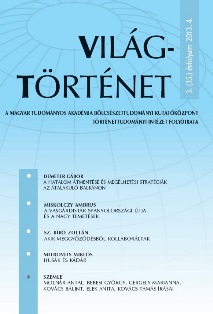Husák és Kádár. A csehszlovák-magyar viszony kibékülés és konfliktus között (1968-1989)
Husák and Kádár. Czechoslovakian-Hungarian Relationships between Appeasement and Conflict (1968-1989)
Author(s): Miklós MitrovitsSubject(s): History
Published by: Magyar Tudományos Akadémia Bölcsészettudományi Kutatóközpont Történettudományi Intézet
Summary/Abstract: In the night of 20–21 August 1968 five member-states of the Warsaw Pact launched military attack against Czechoslovakia and occupied the country in a few hours, putting an end to the eight months period called the “Prague Spring”. This study analyses the evolution of the Czechoslovakian-Hungarian political relationships after the intervention. The purpose of the research is to show how the Hungarian leadership responded to the new situation and what policies they pursued in order to overcome the crisis. János Kádár, after being pressed to join the military action, which he had opposed all the time before, immediately started to fi nd an accommodation with the new Czechoslovak leadership. The study presents Kádár’s standpoint after the military intervention and the role he played in the process which led to the appointment of Gustáv Husák as the first secretary of the Communist Party of Czechoslovakia. The article also charts the political relationship between Husák and Kádár during and after the “normalization”, and sheds light on the conflicts occurring between the two countries in the 1970s and 1980s.
Journal: Világtörténet
- Issue Year: 2013
- Issue No: 4
- Page Range: 531-548
- Page Count: 18
- Language: Hungarian

